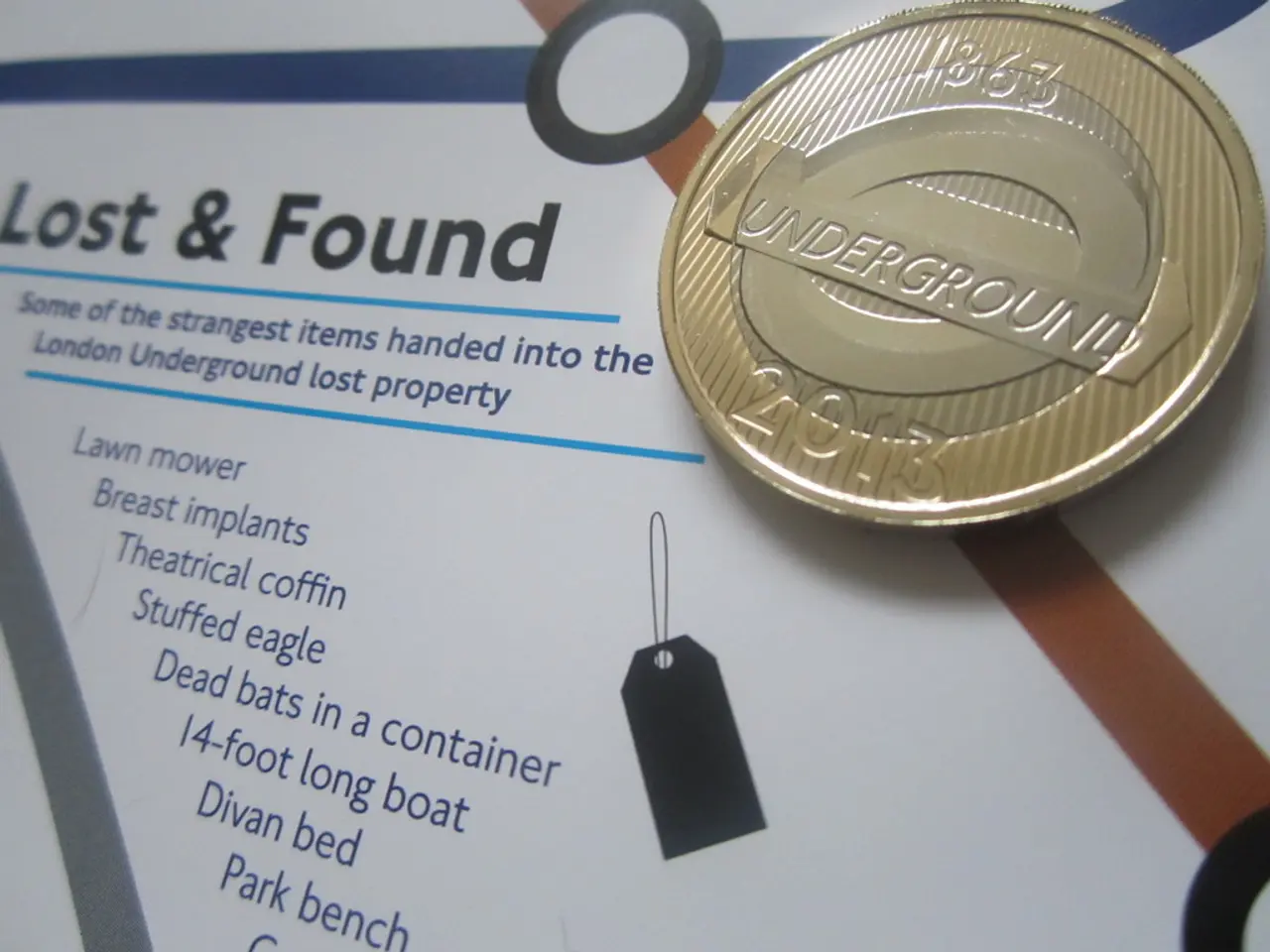Digital currency development project using central bank digital currency (CBDC) and tokenized deposits on hold, as banks gravitate towards stablecoins for preference.
In a strategic move aimed at reducing reliance on US dollar-pegged stablecoins and bolstering South Korea's financial independence, eight of the country's top commercial banks have announced plans to issue a won-backed stablecoin by late 2025 or early 2026.
Led by KB Kookmin, Shinhan, Woori, Nonghyup, Corporate, Suhyup, Citi Korea, and SC First Bank, this initiative is part of a broader push towards promoting private sector leadership in digital finance. The consortium aims to strengthen South Korea's competitiveness in the global digital finance market by offering a local alternative to foreign stablecoins and mitigating the risk of dollar dominance.
The banks' effort is separate from but complementary to the Bank of Korea's central bank digital currency (CBDC) project, Project Han River. The stablecoin is expected to adopt a trust-based or 1:1 deposit token model, subject to regulatory approval under the proposed Digital Asset Basic Act.
This move signals a notable trend where private sector stablecoins emerge as viable alternatives or supplements to CBDCs, reflecting evolving dynamics in the digital currency ecosystem. It highlights how countries with advanced financial markets are seeking ways to maintain monetary sovereignty amid the growing dominance of dollar-backed stablecoins and expanding digital asset usage worldwide.
The project could catalyse similar initiatives in other countries, where private banks collaborate to issue national currency-pegged stablecoins, thereby reshaping how digital currencies are integrated into traditional financial systems on a global scale.
Meanwhile, the Bank of Korea has paused Project Han River, a wholesale CBDC and tokenized deposit project, due to concerns about high costs of participation and an uncertain path to commercialization. The decision follows pushback from participating banks, including KB Kookmin, Shinhan, Hana, Woori, NH NongHyup, and Industrial Bank of Korea.
Discussions about Project Han River may recommence in the first half of 2026. The banks spent approximately 35 billion won ($26 million) collectively on the first tests. However, the Bank for International Settlements (BIS) appears to have hardened its stance toward stablecoins, characterizing them as unsound money.
Stablecoin hype is reaching a peak, with talk of Amazon and Walmart considering stablecoins. European banks have echoed similar concerns about the high costs of a digital euro retail CBDC, with some also exploring stablecoin issuance. As the global CBDC landscape evolves, it remains to be seen how private sector stablecoins and CBDCs will coexist and compete.
- The eight South Korean commercial banks, led by KB Kookmin, Shinhan, Woori, Nonghyup, Corporate, Suhyup, Citi Korea, and SC First Bank, are exploring a private sector stablecoin to lessen dependency on US dollar-pegged stablecoins, enhancing South Korea's financial independence.
- The consortium's goal is to reinforce South Korea's position in the global digital finance market by presenting a local alternative to foreign stablecoins and minimizing the risk of dollar hegemony.
- While the banks' stablecoin initiative is independent from the Bank of Korea's CBDC project, Project Han River, it reflects a growing trend of private sector stablecoins serving as alternatives or complements to CBDCs in the digital currency ecosystem.
- The banks' project might inspire similar initiatives in other countries, where private banks collaborate to issue national currency-pegged stablecoins, potentially altering the integration of digital currencies into traditional financial systems worldwide.
- Amidst this development, the Bank of Korea has temporarily paused Project Han River due to concerns about costs and an uncertain commercialization path. The participating banks, including those involved in the stablecoin consortium, have expressed reservations.
- As global CBDC adoption grows and stablecoin hype escalates, with even retail giants like Amazon and Walmart reportedly considering stablecoins, it remains uncertain how private sector stablecoins and CBDCs will coexist and compete within the evolving digital currency landscape.




